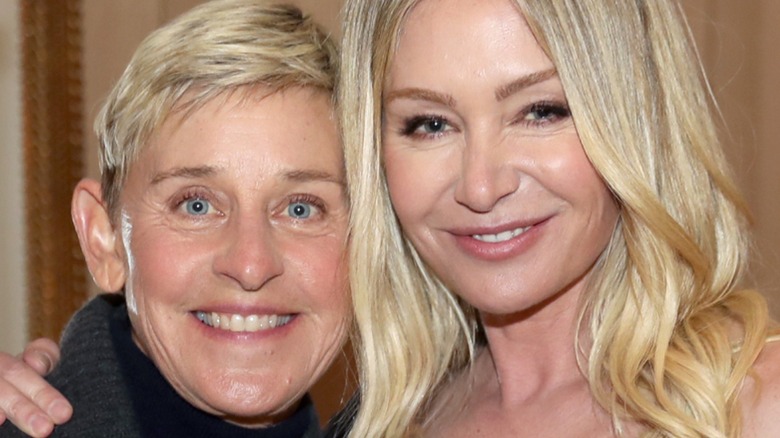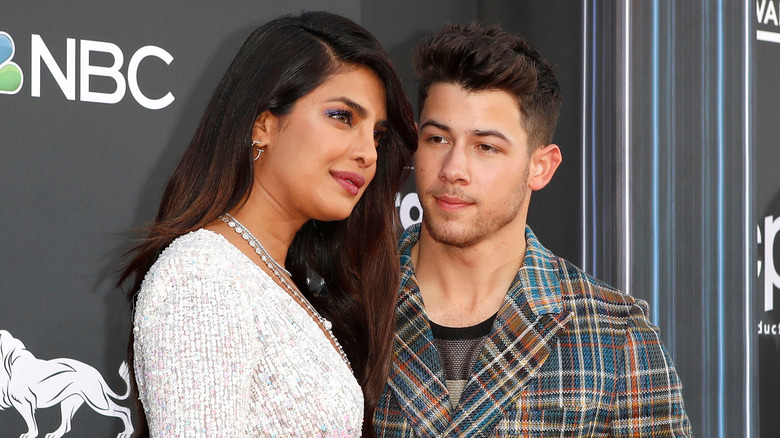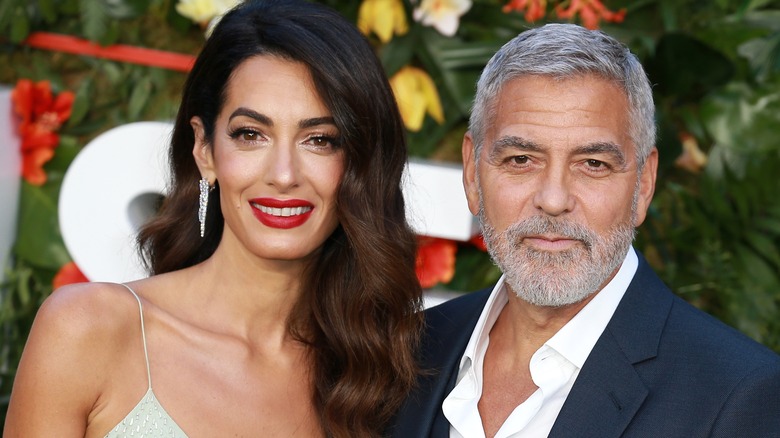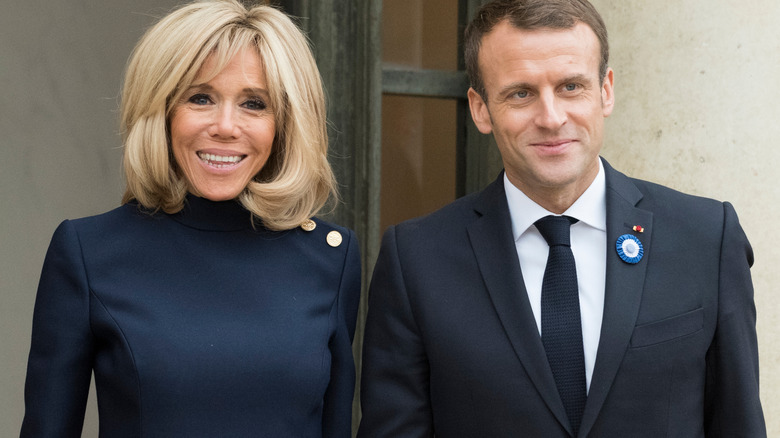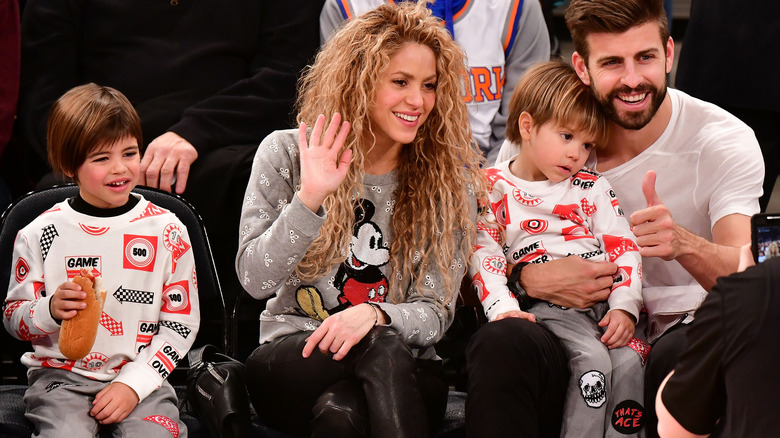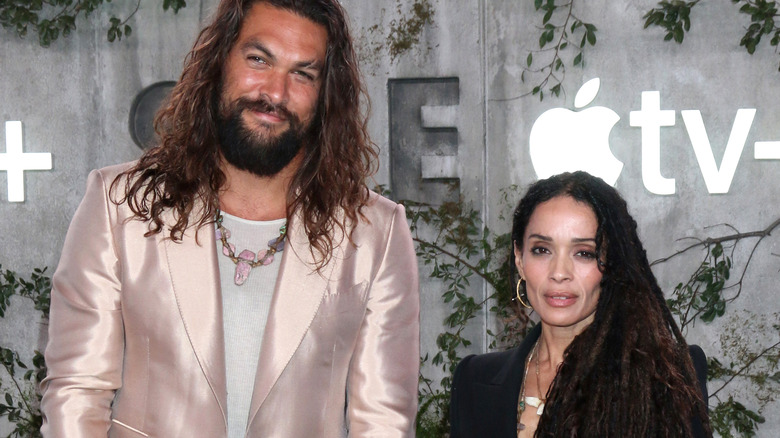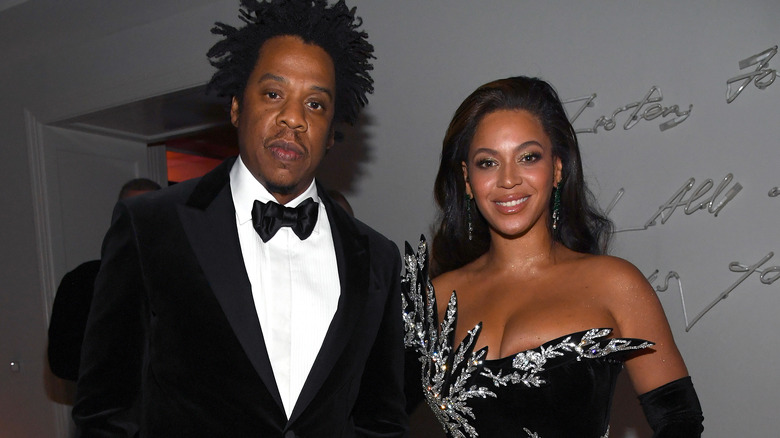Age Gap Red Flags That Are Actually Myths
Relationships can be hard to navigate. Uniquely different adults have to come together, found their common ground on even the tiniest aspect of life, and take so many life-changing decisions together. It doesn't get any easier when the people around you, including your friends and family, have strong opinions on your relationship. While the concern of your loved ones surrounding your romantic relationship is not necessarily a bad thing, the question of the age gap can become an unnecessary hiccup along the way.
The taboo surrounding age-gap relationships is real. Our society has already assumed that your relationship is destined to be doomed if you're with someone who is significantly older than you are. Age-gap relationships can make or break under the right circumstances, just like any other relationship. "My husband is 13 years my senior. We make the relationship work with mature wine, cheese, and conversation — we talk about everything, laugh hysterically, and forgive quickly," said Lisa, 48 married to Albert, 61 (via Insider). "Because we are both professionals, we often negotiate and find arrangements that are as close to win-win as possible. Successfully agreeing to disagree when necessary has helped our marriage thrive, as well."
Most of the myths surrounding this is more societal and has very less scientific or experimental backing. Here are some of the red flags pointed out in age-gap relationships that are, in fact, just myths.
Myth: The half-your-age-plus-seven rule is the only acceptable age gap
One popular guideline for vetting the age gap in romantic relationships is the "half-your-age-plus-seven" rule. This unofficial rule basically states that it's socially acceptable for you to date someone if they're older than half your age plus seven years.
"My husband and I are 19 years apart; we were 21 and 40 when we started dating. ... We've been together for 14 years (married for two)," shared Carol, 54, married to Guy, 35 (via Insider). According to the rule, this couple's age gap just became socially acceptable. As you get older, the socially acceptable age gap also increases. With time, a couple that used to be socially unacceptable can actually become acceptable.
While people love to quote this when calling out age-gap relationships, the rule has little scientific basis to it. A study conducted by researchers Buunk and colleagues found little merit in using the "half-your-age-plus-seven" calculation as a rule of thumb to evaluate all romantic relationships. According to Psychology Today, "The rule does not map perfectly onto actual reports of what is socially acceptable. At times it is too stringent, but most often it appears too lenient, condoning age pairings with which most people are not comfortable." The problem is that a basic mathematic equation falls short in explaining complex human emotions of love, sex, and romance. The equation also doesn't take into account traditions, patriarchy, and other social factors.
Myth: The older partner will be the decision-maker in the relationship
One of the biggest red flags society points out in age-gap relationships is the power dynamic that arises due to the age difference. The belief is that the older partner with more seasoned life experiences is more mature and tends to control the younger partner by stopping them from experiencing life first-hand and making their own decisions and mistakes.
In a video produced by Vice Asia, dismantling the myths in age-gap relationships, Milos, 44 and Wutt Yee, 29; a Filipino-Burmese couple with an age gap of 15 years shared their unique experiences of being in an age-gap marriage. Answering one the most asked questions of who makes the decisions in the marriage, Milos replied with a smile: "I am more child-like, no, childish in the relationship ... That's true, she's more mature than me" (via YouTube). Brandy Porche, a licensed counselor dispelled the myth by confirming that different levels of maturity are present in all relationships, including the ones with a considerably smaller age gap, say, four or five years (via Psych Central).
Relationships with a huge emotional maturity gap can be draining for the more mature person who has to pick up the emotional load of the relationship. This is not necessarily the older partner. Age is not directly proportional to emotional maturity. Being the older partner doesn't guarantee maturity nor does being the younger partner guarantee immaturity.
Myth: Men marry younger women for bragging rights and young women are just trophy wives
In the ABC comedy, "Modern Family," we see this myth being perpetuated and dispelled. Gloria, the second wife of Jay Pritchett is younger than her husband's daughter, Claire. The show aptly dismantles the myth by progressively showing the healthy relationship dynamic between the couple. It's important to understand where this belief comes from. A surface-level probe is enough to realize that this comes from nothing other than *cue drumroll* patriarchy.
Patriarchy reduced men to their wealth, prospects, and their ability to "provide" while reducing women to their ability to look a certain way and be a trophy or eye candy. Julie Albright, a sociologist at the University of Southern California, and Lisa Brateman, a psychotherapist and relationship specialist, elaborated on this phenomenon. Albright explained that society thinks age-gap relationships are based on "beauty for money ... the idea that typically women traded beauty for financial stability" (via The Washington Post). Brateman warned us about the pitfalls of making such an assumption, which is basically an outdated stereotype. "All these labels [opportunists, cougars, gold-diggers] reflect a deep-rooted sexism and judge women," says Brateman.
"I think when you choose a partner, bragging rights shouldn't be the priority. You're attracted to them because they are beautiful, or your personalities match. You just fall in love and you don't think about anything else," explained Milos to Vice Asia.
Myth: Younger partners rely on their older halves, financially
Many people assume that the older partner who has had more years to establish a flourishing career makes more money than the younger partner who has spent relatively less time in the economy. This belief comes from the assumption that everybody's lives run on the same timeline. Age is not the only factor contributing to your financial status. Generational wealth, years spent actively working, investment decisions, choice of career, and many more factors contribute to this.
When asked about the assumption that younger partners financially rely on their older halves, Wutt Yee firmly disagreed. "These days younger women also have their own career and their own income. So they don't really depend on their husbands financially. In fact, in our case, I have more money than him," she told Vice Asia.
While financial dependence can bring a power imbalance to a relationship, this is not a problem faced solely by age-gap relationships. According to Psych Central: "A power imbalance can also happen if one partner uses their partner's financial dependence as a way to exert control over them. Whether you and your partner are separated by a few or many years, this behavior is a sign the relationship may be a source of harm."
Myth: Older partners aren't able to keep up with their younger partners
It's a common notion that older partners aren't able to keep up with their younger halves, especially in the bedroom. This assumption comes from the fact that as years go on, partners age disproportionately and eventually lose the spark. While society believes such, studies prove otherwise.
According to The New York Times, research has proven that an age-gap relationship, specifically an older-woman-younger-man dynamic can be the opposite of this myth as most women reach the peak of their sexual life in their 30s and 40s while most men hit their peak in their 20s. This suggests that sexual compatibility between older women and younger men is potentially a more suitable match. Milos and Wutt Yee also disagreed with the red flag that age gaps in relationships mean one partner is more energetic than the other. Milos joked that his wife takes good care of him. He says that he eats a lot and doesn't leave much for Wutt Yee, leaving her with no energy.
Myth: An age gap between partners mean they're in different phases of life
Having common interests and aspirations is important for a relationship to flourish — this is not exclusive to an age-gap relationship. "In any relationship, it's key to discuss each person's priorities and hopes for the future as a part of determining your compatibility if you're looking for a long-term relationship" (via Psych Central).
Julie, 60 and Brandi, 39 have been together for 19 years. The couple with a 22-year-old age difference agrees that it is important to "accept that you are in different developmental stages in life. ... As much as I'd love more time with her, I need to support her in doing that rather than trying to get her to be in my developmental stage in life," Brandi shared (via Insider). When sharing their secrets to a happy relationship, Julie and Brandi said: "Limit your expectations of each other. Having such a big age span means there are no life scripts for us. By limiting our expectations, we can communicate what we need, and work together to meet those needs."
Myth: An age gap in a relationship means partners don't have anything in common
Although, having common interests are an essential part of a fulfilling relationship, especially during the initial stages, it's premature to assume that you cannot have common interests with your partners just because of an age gap.
"I'm 58 and my GF of 18 months is 25. She's mature, articulate, intelligent, and has a very good career. We have common interests, talk about many things, and really enjoy each other's company," shared a Reddit user.
Amy, 33 and Matt, 49 highlighted the importance of celebrating the similarities and differences in a relationship. They said it's important to allow room for individuality while also engaging in activities they enjoy as a couple. "Most importantly, we don't focus on our differences; while we may be 17 years apart, it's never been a consideration for us because we enjoy the same activities, we share the same drive for success, and we truly enjoy each other's company and presence," they explained (via Insider).
Myth: The older person has all the power
Age is not the only factor that contributes to the power dynamics in a relationship. Wealth, experiences, and upbringing are also very important contributing factors. In a personal essay titled, "What is an acceptable age gap in relationships?" that appeared in Vogue, singer and writer Tom Rasmussen shared his experiences of being in relationships with huge age gaps and the power dynamics because of it.
Rasmussen agreed that while there is a skewed power dynamic in an age-gap relationship, this is not just a one-way street where the older partner enjoys all the power and holds it over the younger partner. "In my experience, the older person in the relationship has the power of experience, sure, but the younger person has the power of youth, of access to culture now," wrote Rasmussen.
Like any other relationship, age-gap partners also bring certain strengths and weaknesses to the table. Acknowledging and holding space for these differences is vital for any partnership, including an age-gap relationship to flourish.
